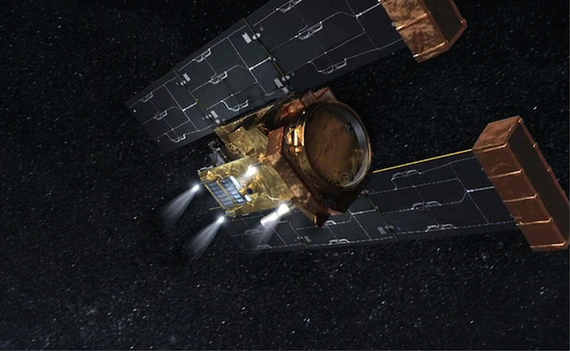Seven days; lots of science in the news. Here's our roundup of this week's most notable and quotable items.
Seven grains of rock scooped up by NASA's Stardust probe may have originated from outside our solar system. Newly discovered pterosaur Caiuajara dobruskii sported a crest that drew comparisons to a butterfly wing as well as a yacht's sail. Stanford University mathematician Maryam Mirzakhani became the first female recipient of the Fields Medal, often called math's equivalent of a Nobel Prize, for her work on the symmetry of curved surfaces.
Scientists used genetic engineering to convert a pathogenic soil bacterium into a tumor-devouring assassin, built a swarm of 1,024 robots that can organize themselves into various shapes, and made a postage-stamp-size microchip modeled after the human brain, complete with one million computational "neurons." Deodorants may alter "the community of bacteria living in your armpits" -- mainly by leaving you with the worst-smelling ones. Tiny gold nanoparticles may give a boost to brain cancer treatments.
First there was Google Maps, then there was Google Street View, and soon there might be Google Sea View: Scientists will be snapping 360-degree-view photos underwater near the Florida Keys in a project partially sponsored by the search giant. Mice that took antibiotics were more prone to obesity later in life. Tracking involuntary eye movements may be a better way to diagnose ADHD.
A low-salt diet can pose its own kinds of risks. Parasitic strangleweed injects its genetic material into a host plant, highlighting a possible and previously unheard of form of plant communication. Southern California mountain lions, penned in by freeways and housing developments, are unable to range further abroad and are turning to incest.
____________'This Week In Science' is presented by the World Science Festival, an annual celebration of science in New York City. To see engaging scientific conversations, learn about new discoveries and more, check out the Festival website.
